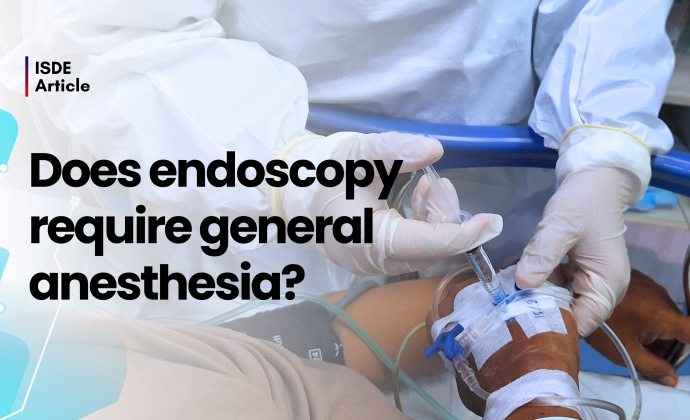
Does Endoscopy Require General Anesthesia?
Many people feel anxious before undergoing an endoscopy, often wondering, “Do I have to be put under general anesthesia?” This concern is completely understandable, especially for those having the procedure for the first time. In fact, most endoscopic procedures do not require general anesthesia.
Endoscopy is generally performed under mild to moderate sedation, not general anesthesia. Sedation helps patients feel relaxed and comfortable without being completely unconscious. General anesthesia is only used in certain situations—such as for children, high-risk patients, or during more complex procedures like POEM (Peroral Endoscopic Myotomy).
For routine procedures, sedation is safely administered by the endoscopy team according to international standards. However, in special cases—such as elderly patients, those with heart or lung disease, or when the procedure is expected to take longer—collaboration with an anesthesiologist becomes very important. The anesthesiologist plays a key role in pre-procedure risk assessment, administering deeper sedation or anesthesia when needed, and ensuring patient stability throughout and after the procedure.
With appropriate sedation, patients typically do not feel pain during endoscopy. Only a small number may experience mild discomfort in the throat or abdomen, which usually resolves quickly after the procedure.
Before undergoing endoscopy, patients are usually asked to fast for several hours and will receive an explanation about the available sedation options. It is also important to inform the doctor about any medical conditions, medications, or allergies to ensure the procedure is performed safely.
With the right understanding, patients can feel more calm and confident knowing that endoscopy is a safe, quick, and valuable procedure—both for diagnosing and treating various gastrointestinal conditions.
This article has been reviewed by Achmad Fauzi, MD, PhD
References:
ASGE Standards of Practice Committee. Guidelines for sedation and anesthesia in GI endoscopy. Gastrointest Endosc. 2018;87(2):327–337. doi:10.1016/j.gie.2017.07.018
Dumonceau JM, Riphaus A, Schreiber F, et al. European Society of Gastrointestinal Endoscopy (ESGE) Guideline: Non-anesthesiologist administration of propofol for GI endoscopy. Endoscopy. 2015;47(12):1175–1189.




 Users Today : 791
Users Today : 791 Total views : 2250716
Total views : 2250716 Who's Online : 5
Who's Online : 5